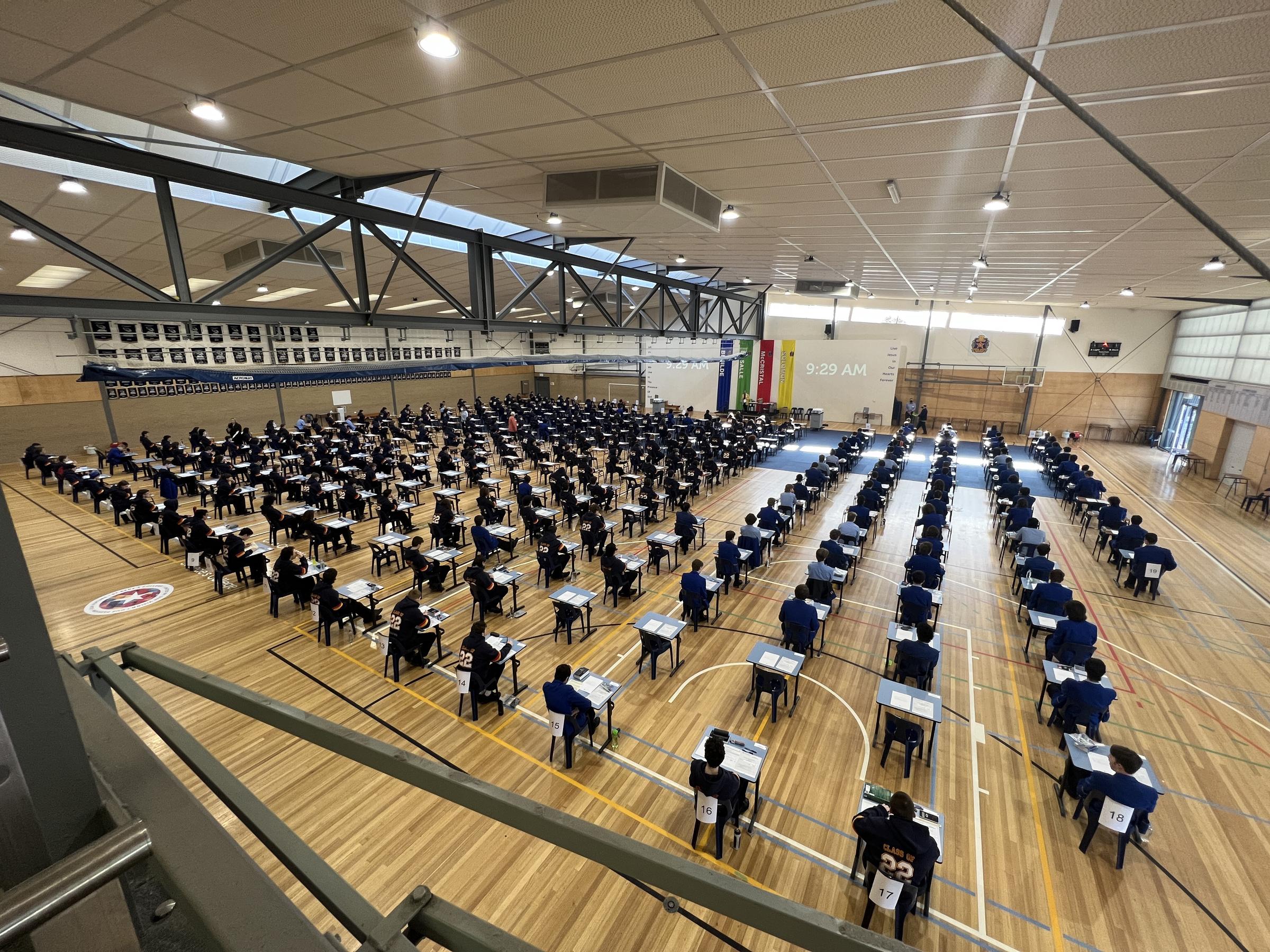Learning and Teaching

The General Achievement Test
On Wednesday September 7, all of Year 12 and all Year 11 students undertaking a Unit 3/4 subject sat the General Achievement Test (GAT). It comprised of two parts; the literacy and numeracy component for the first two hour block (which was completed by all students present), with skills in mathematics, science, technology, the arts and humanities assessed in the afternoon. Students were briefed in preparation, with the overall majority understanding the importance of the test.
As of 2022, the GAT serves two purposes. The first is to assess literacy and numeracy skills in order to determine that they are at the level that is expected for a student completing their secondary schooling. Its second function is largely for our students completing their VCE with an ATAR, in that it provides an indication of what study score they are expected to achieve. This is particularly useful in the case of illness or misadventure whereby a student’s exam performance may be compromised. In this instance, a student may apply for a derived exam score to ensure that there is no disadvantage due to unavoidable circumstances. With COVID-19 still present in the community, this may well be required for some students in the coming months, however we keep our fingers crossed that this is not the case.
Exams
As mentioned in the September 14 edition of the eNewsletter, the GAT sees the commencement of the Unit 3/4 Trial Exams for the majority of Year 12 students along with those accelerating in their VCE at Year 11. It is a somewhat challenging time, however serves to give students an indication of where their strengths and, more importantly, their weaknesses lie in their subject at this time of the year. We wish our senior students well in these final months.
These Trial Exams also serve as a reminder to students in Years 9 to 11 that their exams will be taking place in the second half of Term 4. It should be stated that it is never too early to prepare for exams, both as a means of alleviating excessive stress and in order to hone study and preparation skills. Whilst there are different ways of studying, students are reminded of techniques demonstrated earlier in the year that utilise;
- Consistent note taking
- Transferring and summarising these notes to cue cards
- Using memorisation techniques such as chunking, mnemonics and acrostics
- Stacking cue cards into two piles of ‘known’ and ‘unknown’, with regular review decreasing the size of the unknown pile well before the exam date.
Should any parents or students take the time to read the research on memory, it will also come as no surprise that in order to remember things more effectively, regularly spaced exposure transfers information from the short to long-term memory. Acknowledging that memory isn’t everything when it comes to learning, it is particularly helpful to retain necessary terms and processes for exam situations and the sooner this is understood then the higher the chance of success. As always, we are here to help students with such processes and will continue to work with families to support these skills throughout their time at the College.
Brenden Mair
Deputy Principal
Teaching and Learning
